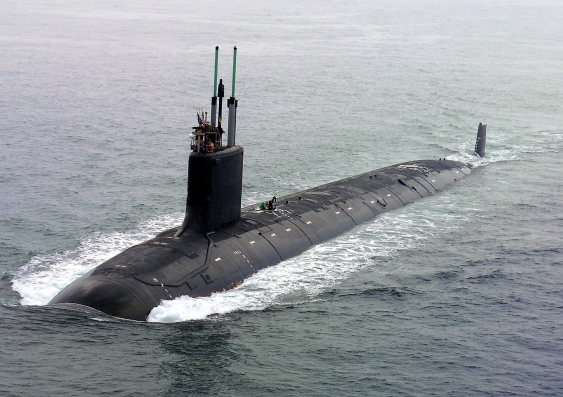Have the Chinese warships off AustraliaŌĆÖs coast broken any laws?
2025-02-24T16:48:00+11:00

The Jiangkai-class frigate Hengyang is believed to be one of the ships involved in the exercise.
Photo: Australian Department of Defence
╣·├±▓╩Ų▒ CanberraŌĆÖs maritime security expert, Douglas Guilfoyle, explores where international law and military behaviour overlap.
On Thursday 20 February it was announced that three Chinese warships had been operating in AustraliaŌĆÖs 200-nautical-mile Exclusive Economic Zone (EEZ) off the east coast, .
On the following , on the high seas outside the Australian EEZ, the vessels conducted unannounced live-fire exercises in the Tasman Sea some 340 nautical miles from Sydney.
Australia learned of the exercises from to aircraft in the region and criticised the lack of notice. Australia would normally give 12-24 hoursŌĆÖ notice of such exercises. would have preferred 24-48 hoursŌĆÖ notice.
Yet both countries have accepted that these activities did not breach international law. Similarly, Australia did not protest the missions of Chinese ŌĆśspy shipsŌĆÖ off our coasts in and .
What has China said about such activities in the past?
Notably, China generally takes a very dim view of other countries conducting military activities in its 200-nautical-mile EEZ.
In 2001, a US surveillance plane collided with one of two Chinese F-8 fighter jets sent to shadow it, some 90 nautical miles off the coast of ChinaŌĆÖs Hainan Island.
The collision resulted in the death of a Chinese pilot and the brief detention of the US aircrew after an emergency landing on Hainan. said ŌĆ£the US plane's actions posed a serious threat to the national security of ChinaŌĆØ and violated the principle that in (or over) the EEZ military activities ŌĆ£should respect the rights of the country concernedŌĆØ.
Similarly, have expressed the view that ŌĆ£military activity that is harmful to the coastal stateŌĆÖs sovereignty or security in the exclusive economic zone is illegalŌĆØ.
in the path of Royal Australian Air Force helicopters and fighters in the South China Sea in incidents in 2024 and 2025, saying Australia was ŌĆ£violating Chinese sovereignty and endangering Chinese national securityŌĆØ.
Oddly enough, China did not seem concerned enough by Australian ŌĆśnational securityŌĆÖ to refrain from its own ŌĆśspy shipŌĆÖ transits off Australia in 2023, when it observed US-Australian training operation Talisman Sabre, or in 2024 when one of its intelligence vessels passed on the west coast.
What does international law say?
The UN Convention on the Law of the Sea (UNCLOS) does establish the right of coastal States to ŌĆ£sovereign right and jurisdictionŌĆØ over the living and non-living resources of a 200-nautical-mile EEZ off their coasts.
Contrary to previous Chinese pronouncements (like those detailed above), this is not a zone in which there is any express right to protect national security or prohibit foreign military exercises.
And, in fairness, ChinaŌĆÖs own asserts no such rights. However, China has consistently pointed to language in UNCLOS stating that foreign states operating in the EEZ should operate with ŌĆ£ŌĆØ of the coastal State.
This position may explain why Chinese vessels left the Australian EEZ to conduct their live fire exercises on the high seas. If it had not, a ŌĆ£turn about is fair playŌĆØ argument could be made for live fire exercises to be conducted within 200 nautical miles of the Chinese mainland by other countries.
Media enquiries
For enquiries about this story or to arrange interviews, please contact Damon Whittock, ╣·├±▓╩Ų▒ Canberra at the Australian Defence Force Academy.
Tel: 0404 489 376
Email: d.whittock@unsw.edu.au





